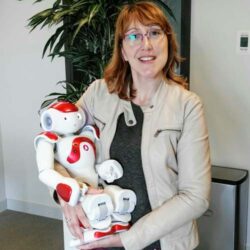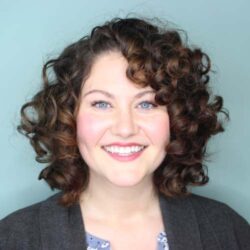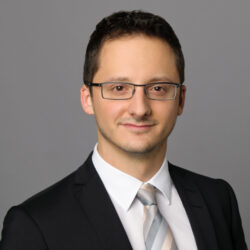...




Ignacia Duarte, Coordinator and Research Assistant
Ignacia is a sociologist from University of Chile, with studies at Utrecht University, the Netherlands. She has experience coordinating teams of teachers at Universidad de Chile, serving as liaison between teachers, teaching assistants and students. She has experience in several studies with children and adolescents. In RobotLAB she coordinates projects and performs interviews.

Claudia Astudillo, Research assistant
Claudia Astudillo holds a master in social communication, specialized in communication and education, at the Pontifical Universidad Católica de Chile (2019). She is a specialist in multimedia design at the School of Design at the National Institute of Fine Arts (Ciudad de México, 2013) and has a bachelor in communication studies at Universidad Autónoma Metropolitana (Ciudad de México, 2011). Her work and research interests are within the area of children, adolescents and media, over which she has developed her thesis. She has worked as teacher, coordinator and communications lead at high education institutions in Mexico.

Ricardo Sepúlveda, Thesis student and Research assistant
Ricardo Sepúlveda Soto has a bachelor in industrial design at Universidad de Chile. Currently, he is working on his professional degree as a research assistant at Carmina Rodríguez’ Fondecyt initiation project oriented towards social robotics. He has worked as a research assistant at U-inicia, financed by VID Universidad de Chile (2019) and as teacher of digital maker technologies at Fablab Santiago and in the Mustakis foundation. His research is centered on the creation of socioemotional learning experiences with social robots.

Camila Jaramillo, Research assistant
Camila Jaramillo holds a master in inclusive education at Universidad Central in Chile and is a speech therapist from Universidad Austral Chile. She is a professional at the area of academic counseling at the Program of access to higher education at Universidad Católica Silva Henríquez. She has worked as a specialist in language, speech and communication disorders, in rural and urban schools. Her master thesis centered in processes of inclusive education in migrant children in early education, involving themes of interculturality, bilinguism and inclusive education.

Pamela Droguett, Research assistant
Pamela is a sociologist by Universidad de Valparaíso, with studies at Universidad Autónoma Metropolitana, Mexico. Over the past eight years she has studied themes related to popular education in her hometown Valparaíso. Her bachelor thesis was about user relationships with videogames, how it shapes their subjectivity as both a channel and actor. Her main research interests are: community interventions, popular education, and pop, mass and social media culture. In RobotLAB she assists gathering data among students in Chile’s fifth region.

Camila Vergara, Research assistant
Camila is a sociologist by Universidad de Valparaiso, with studies in quantitative and qualitative analysis, projects setup and territorial organization. She is experienced in community work, popular education, and works with children and adolescents through sports, clown and the Valparaiso Explora Program. Her interests lay on research, data analysis, community interventions, territorial maps and popular education.

Autumn Edwards
Autumn Edwards holds a PhD in Communications and is a senior lecturer at the School of Communication at the University of Western Michigan. She is the co-director of the Laboratory for Communication and Social Robotics (COMBOTLABS). Her research interests focus on interpersonal communication and communication theory, both face to face and in computer-mediated contexts. Autumn is the editor-in-chief of the journal of Human-Machine Communication and co-author of the introductory text to communication, The Age of Communication.

Chad Edwards
Chad Edwards holds a Ph.D. in Communication and is a senior lecturer at the Communication School of the University of Western Michigan. He is co-director of the Laboratory for Communication and Social Robotics (COMBOTLABS). His research interests focus on human-machine communication, human-robot interaction, and artificial intelligence. Chad is co-author of the introductory text to communication, The Age of Communication (Sage). Dr. Edwards has received numerous awards for his articles and serves on the editorial committee of several journals, including Communication Education. He also served as President and Executive Director of the Central States Communication Association.

Jochen Peter
Jochen Peter holds a PhD in Communications from the University of Amsterdam and is the lead researcher at the CHILDROBOT project, which has received funding from the European Research Council (ERC). His research focuses on how young people use technologies and how this affects their psycho-emotional development. He has published more than 100 research papers and book chapters. In 2019 he was appointed fellow of the International Communication Association (ICA), in recognition of his “contributions to the study of human and mediated communication.” In his previous research, Jochen investigated the impact of online communication on the sociability of adolescents.

Alex Barco
Alex Barco holds a Ph.D. in Electronic Engineering by Ramón Llull University, Barcelona Spain, and is currently a post-doctoral researcher at the Amsterdam School of Communication Research (ASCoR), the Netherlands. His research approach focuses on social robot applications for use in education in children in the STEAM (Science, Technology, Engineering, Art and Mathematics) areas. He is interested in the long-term development of long-term relationships between children and robots. In the University of Amsterdam’s CHILDROBOT project, he works on how children implicitly learn social heuristics from robots.

Rinaldo Kühne
Rinaldo Kühne holds a PhD in communication at Zurich University and is a social robotics researcher within the mentor project CHILDROBOT at University of Amsterdam. He is assistant professor at the Amsterdam School of Communication Research (ASCoR). His main interests are the cognitive and emotional effects of technologies and quantitative research methods. Previously he investigated media effects in the formation of political opinions.